Question for Our Hotel Marketing Expert Panel
Personalised guest experiences are becoming increasingly important and maintaining rich guest profiles helps hotels deliver on preferences and anticipate needs. Is a CRM essential for personalisation?
Industry Expert Panel
Our Industry Expert Panel exists out of professionals within the hospitality & travel Industry. They have comprehensive and detailed knowledge, experience in practice or management and are forward-thinking. They are answering questions about the state of the industry. They share their insights on topics like revenue management, marketing, operations, technology and discuss the latest trends.
Our Marketing Expert Panel
- Adele Gutman – Culture and Guest Experience Expert, Hospitality Reputation Marketing Podcast
- Thomas Dieben – Founder, Becurious
- Tamie Matthews – Revenue, Sales & Marketing Consultant, RevenYou
- Reshan Jayamanne – Digital Marketing & Sales Strategist, Bnb Optimized
- Jolien Alferink – Hotel Marketing Consultant, Orange Hotel Marketing
- Luminata Mardale – Director Of Marketing And Business Development, Vienna House
- Alessandro Inversini – Associate Professor of Marketing and Director of the Institute of Customer Experience Management, Ecole hôtelière de Lausanne
- Daphne Beers – Owner, Your-Q Hospitality Academy
- Jacopo Focaroli – CEO & Founder, The Host
- Natasha Robertson – Independent Consultant, Ecole hôtelière de Lausanne
- Stephanie Smith-Sparks – Founder, Cogwheel Marketing
- Sarah Dandashy – Travel & Hospitality Expert, Ask A Concierge
- Michael Markarians – President, Tee Hospitality
- Nicole Sideris – Founder & Prinicipal Consultant, X Hospitality
- Grazia Dell’Aquila – Hospitality Consultant, IAMGRAZIA
- Tim Kolman – Commercial Strategy Expert, three&six
- Ask Our Panel a Question
- Join Our Expert Panel
“Personalization creates elevated experiences and excellent experiences create loyalty. Loyal guests not only stay more, but they are willing to pay more for an elevated experience. What’s more, they will say more, giving recommendations and 5-star reviews that attract new future guests.
Loyalty begins with making each guest feel like a very important individual. We all know that the cost of acquiring a new customer is far more than keeping a loyal customer and the cost of acquisition is getting higher all the time. That’s why any communication tool like a CRM is essential to any company committed to appreciating and optimizing the lifetime value of every guest.
However, a CRM can only become a powerful tool in the hands of a team of hoteliers who are truly committed to using it to make their guests feel cared for, appreciated, and respected:
- Elevate the guest experience
- Showcase differentiation: What makes your hotel and location awesome?
- Reduce friction points
- Create convenience
- Prove the value of a direct relationship with your hotel over an OTA
Start with a pre-stay registration form to all guests regardless of how they booked, asking for contact details, particularly their mobile number and email, so that on the day you can deliver any last-minute messages to help ease their arrival. Now you have that direct contact on which to build a caring relationship.
Ask on the form why they are coming; the names and ages of all the registered guests, their anticipated arrival time, and if there are any questions or special requests before they arrive. For example, if they are visiting a nearby medical center or are on their honeymoon, that information should guide the type of information and support that a caring human would offer, and your digital communications should reflect that distinction. What would a vegetarian or a dog lover want to know in advance to reduce anxiety and friction points and elevate their guest experience?
Prepare communications for them so that your digital communication experience is as thoughtful and human as possible. Don’t just take the arrival time plus additional guests’ names and ignore that data. Do your best to utilize the information to make every guest feel like a VIP and you will find your loyalty and your profitability on the rise.
Finally, ask your team what the most frequent questions are on arrival and what recurring friction points arise where guests were disappointed or unaware of something until they checked in. Support your Guest Service team by helping relieve the situation with your CRM. Use that data to go back to your confirmation and pre-stay emails to better communicate in advance of arrival and manage expectations. A great arrival experience sets the tone for a great stay and a great lifelong relationship with your customer.”
“As we focus primarily on the online awareness, evaluation and acquisition phases of the guest journey, I will specify my answer towards these areas.
Personalised website content is possible primarily due to the use of cookies. As the current use of cookies will be terminated soon, digital marketers must investigate other ways to offer the right content, at the right moment to the right guests. Context-based marketing and initiatives like Google FLoC will offer possibilities to target specific audiences and offer tailored content. Allowing potential hotel guests to get specific discounts with promotion codes and/or offer a personalised booking experience are also some examples of personalisation. Also, the use of chatbots (with AI), adding price comparison tools, smart notifications and offering the possibility to receive a ‘saved availability and rate search per email’ can be deployed.
Using a CRM system with seamless connectivity to the hotel’s PMS offers possibilities to reach and attract recurring guests. This kind of system, with the option to offer tailored content, helps in getting the most value out of a guest. Implementing a strategy to save guest information and make campaigns to reach them, should be used by hotels aiming for repeat guests.”
“I believe that with the shift to a digital world and everything being online, we are all craving proper, authentic interactions with others more than ever. As hoteliers, it’s important to remember that we chose this industry because we love people. Yes, the personalised experience is vital whether you are a 3 star or a 5 star.
Understanding your guests’ needs and delivering what they want before they ask is the winning recipe. I used to work at a hotel where we asked guests for the dates of their birthdays and anniversaries. 6 weeks prior to those occasions, we would email them to ask whether we could book their favourite room with their favourite spot in the restaurant. We even recorded what wines they had on their previous stay.”
“The most money you will ever spend on a business is in the process of acquiring a new customer. i.e., CPA (cost per acquisition). Therefore, it is vital to make the most of that customer once they are acquired (purchased/booked your stay). This is known as increasing your ALTV (Average Life Time Value – how much, on average, a customer may spend over year/s of return business) of a customer and is vital to be aware of.
The role of a robust CRM is to manage the relationship between your business and your customer in the hope of increasing the likelihood of return business. It’s much easier to persuade an existing customer for return business than it is to persuade a stranger (a new prospect). A CRM is great to understand the type of customers you attract, their seasonality, and where they spend their money. Observing this data, and how it changes over time, can help your business position offers throughout the year that best suit the customers’ needs.
For example: once you have acquired the customer and they have stayed at your hotel, you can automate trigger-fired email sequences, offering the customer a unique stay based on what they did/didn’t do in the hotel. This is putting rich data to work, e.g., a couple could receive an offer that includes spa treatment and a romantic dinner. Similarly, if you are doing this at scale, you can link your CRM with your advertising platform (Google, Facebook, and so on) to extract a “custom audience” and re-target your EXACT customers based on the data gathered in the CRM with detailed, non-intrusive advertisements wherever they go online that give you the best possible chance of return business. This is advertising at scale without wasting any money as you’re only speaking to your existing customer base and building a relationship with them that allows you to gain a far greater number of return bookings.
Provide so much value in a customer’s first visit that they are already thinking about when they can return to your business when they leave. Increasing your ALTV means that you can then afford to spend MORE on advertising and absorb a higher cost per acquisition, knowing that on average, a customer is worth a lot more to you than the cost of acquiring them. As the age-old saying goes, ‘the one who spends the most to acquire a customer, wins.’ Therefore, figure out your ALTV, understand how much you can afford to spend on acquiring a customer, and leverage your CRM to foster trust with your prospects to increase the likelihood of return business.”
“We mostly work with independent lifestyle hotels, where a personalised approach is expected nowadays. However it doesn’t take much effort or expensive technology. It’s all about creating a connection when guests arrive and maintaining that throughout their stay, using their names wherever possible, and fostering good communication throughout the team to share feedback from guests, especially the smaller comments which will impress your guests.
Most properties will work with a PMS which will help with sharing notes internally via the guests profiles. Connecting with guests shortly after their stay is also important, thanking them and expressing hope at welcoming them back again. While technology will play an important role in the latter, the human, personalised touch will still have the biggest impact.”
“Personalization is one of the most important things for a guest when they choose a hotel. Guests expect to be recognized as individuals, including specific needs. Hoteliers have access to instruments to collect all necessary data to give guests a personalized experience addressing their needs. These days, guests expect to feel at home in a hotel (room).
For example, we have guests who prefer to stay in the same room when they use our hotel, require a specific room temperature at arrival, or have double amenities. It is essential to have a CRM because it helps fully understand our guest’s needs and maintain a relationship with them by building a rich profile that can shape personalized customer interactions.”
“At Ecole hôtelière de Lausanne we are finalizing a piece of research that will explain the different values that customization (i.e., ex-ante choice of preferences) and personalization (during-stay experience co-creation) can bring to a hospitality organisation. Customization seems to have an impact on the perception of quality, whereas personalization seems to have an impact on the willingness to pay.
This means that hospitality managers could propose customization offers (e.g., minbar options, pillow options and so on) to drive customers’ quality perception. They could also experiment with experience co-creation to foster a willingness to pay for extra services. CSR, or digital solutions, are essential nowadays to deliver both customization and personalization.”
“Personalized experiences start with simple steps. Let people know you have seen them, acknowledge them, notice them. In interactions with guests, connect with them by asking their name, rather than a room number, passport or reservation. Also ask questions about their stay and then record those answers in your system. Profile preferences are key when preparing for stays and making sure you are able to surprise your guests. This is what makes a stay a memorable one.
Active listening is one of the strongest tools to create a connection with your guests. If you really listen, you can identify their needs and requirements more easily and it is an excellent way to connect and anticipate. This helps creates the personal touch.
Last but not least, take action! Make sure you go out of your way to manage expectations, deliver, and surprise your guests. So in short, the key to get personal is to: Notice, Connect, Remember and Act.”
“It’s essential to have an automated, easy to understand system, especially when staff turnover is high. We don’t need to spend a fortune on this as long as we know how to use it in our favour to speed up and optimize the process. A recurring problem with hotels is the lack of communication and handovers between departments.
How could we live without a “Guest Bible” where we can track previous complaints and issues, favourite room allocation, the newspapers they read, if they have any allergies or if they need their yoga mat? After all, it starts from our teams, whether we are asking the right open questions, if we are passionate, proactive, attentive and intuitive. Our guests are open books and it’s up to us to take good notes (and share them on a CRM).”
“Although we are not a hotel, as a vacation rentals company we provide similar services to guests and operate at the very top end of the market, looking after everyone from royalty to unicorn founders. Speaking from experience, it is essential to listen, to tailor and to remember for future visits what our guests’ individual needs are.
Our CRM is critical to our opreation, essential for both keeping this information secure and also for making it accessible to team members who will be working with those clients.”
“Our company primarily works with branded/flagged hotels, so we do not get loyalty guests information and cannot use a CRM, except for B2B. A personalized experience should be happening in-person. Yes, you can tailor communication prior to their arrival, but that does not increase your conversion rates. It falls more on the technical capabilities of the PMS to log preferences such as pillow types, room location, etc.”
“Knowing the reasons why guests are travelling is one of the best ways to curate a personalized experience. Be it for a honeymoon, a trip to visit family or even a work trip, the more information we can glean about the guest prior to their arrival, the more we can tailor their experience. Of course, repeat guests are the goal, and with the proper CRM system in place, we can keep track of their preferences, likes, dislikes, etc.
Empowered by that information, it makes it easier for us as hoteliers to wow our guests with personalized experiences. If a guest mentions they love espresso martinis, it’s an amazing touch to have one waiting for them upon arrival… and so on.”
“In hotels, personalization is an essential part of delivering a great guest experience. It is more than just knowing a guest’s name (and how to pronounce it), but also anticipating their needs, knowing their preferences, and staying in constant communication with them.
Personalization can drive revenue, keep your clients coming back, and make your employees’ jobs easier. Hotels should focus on personalization. But how do you implement it, at scale, in your hotel today?
- Use Guest Messaging Software
- Maintain Detailed Guest Profiles
- Anticipate Needs and Preferences
- Provide Options — For Everything
- It’s a team effort – Personalization cannot be achieved only by the front desk agents or concierges. Creating an exceptional customer experience, complete with personalization, is a team effort, requiring participation not only from hospitality management but also the housekeeping departments, maintenance teams, valets, and concierges.
Depending on the size of the hotel, operational software that can coordinate all departments is essential in executing the steps above.”
“Guest experience has become the most critical differentiator in the hotel market space today. From acquiring guests and engaging with them to retaining them over time, more and more companies are focusing their efforts on experience-led interactions and journeys. Understanding the guest pain points is also an important factor.
Guests today want simpler and faster ways of service. A CRM is critical to the landscape of the guest journey. It is imperative to set the tone for expectations, connect pre-, during and post-stay and be responsive. A CRM gives you the ability to record preferences, tailor and curate the guest experience.”
“In the near future, especially in hospitality, guests are going to ask for more personalized experience because they want to feel special. After a difficult year, they want to be treated as unique, stay in a unique hotel, and enjoy a unique experience. So how can hotels personalise a stay?
To answer this, hotels must focus on the needs and interests of each guest; i.e., to anticipate them and personalise the entire stay accordingly and to personalize a stay, hotels must be able to provide:
- Attention to detail that may include: special requests related to hobbies and interests of guests, food intolerances, room preferences (e.g., pillows and mattresses), preference of a smart and digital experience or an offline experience.
- A PMS and CRM, to record information about guests in order manage future stays tailored to their needs and increase personalization.
- Technology equipped with digital tools, such as a concierge app, contactless check-in/out, payment, QR codes, etc. By now, technology is found everywhere and therefore it is expected that hospitality facilities are digital-oriented because the technology helps the customer experience by reassuring the guest on safety and cleanliness. A contactless guest experience is a great way to make the guest feel safe and comfortable.
- The hobbies and interests of future guests by offering fitness, yoga, pilates activities during their stay, helping hotels to stand out from the crowd and meet the needs of the market.
For these fundamental points it is necessary to get organized in terms of personalizing the guest experience to help hotels differentiate themselves from competitors, bring an added value, and offer experiences that others do not.”
“A personalized experience is a great way for hotels to compete against the increased popularity of short term rentals or other hotels. While a CRM is not essential, it is highly recommended in order to level-up your personalization game. The second aspect of personalization, and just as important as a CRM, is data.
Most hotels focus personalization efforts after the reservation is booked and after the guest has checked-in. This is already too late.
Personalization should start in the Dreaming Stage. Allow guests to think that the hotel already knows them and is personally welcoming them.
Air Traffic Targeting allows hotels to use display and social marketing to target guests that have started to search for airfare into your market. For example, if I am a hotel in Las Vegas, I can run a digital ad campaign for anyone that has searched for flights into Las Vegas (before they’ve even booked their flight) that says “Dreaming of that Las Vegas getaway… Picture yourself here (at your hotel)!
Another great data platform for personalization is Journera. In many cases, a hotel stay is not the only component of that guest’s journey. Journera allows hotels to have insight into those other components, like flight data for example. A simple personalized message like “Welcome to Las Vegas! We know that you were 2 hours delayed in getting to Vegas, but we see you will be landing right about now. We have dispatched transportation and they will pick you up at X location. See you soon!” That message is as personalized as if it were a friend or relative picking you up at the airport.
Happy Personalization!”
Ask a Question & Join Our Expert Panel
Would you like a question to be answered by our Industry Expert Panel? Or would you like to join our community of experts and share your experience, insights, and knowledge with fellow industry professionals? Via the buttons below you can submit a question or submit a request to become part of our expert panel.

















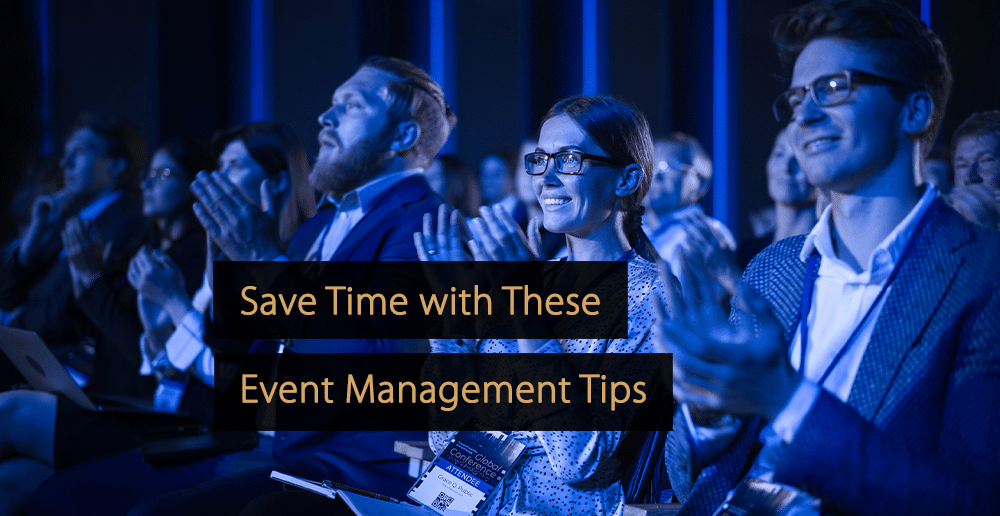
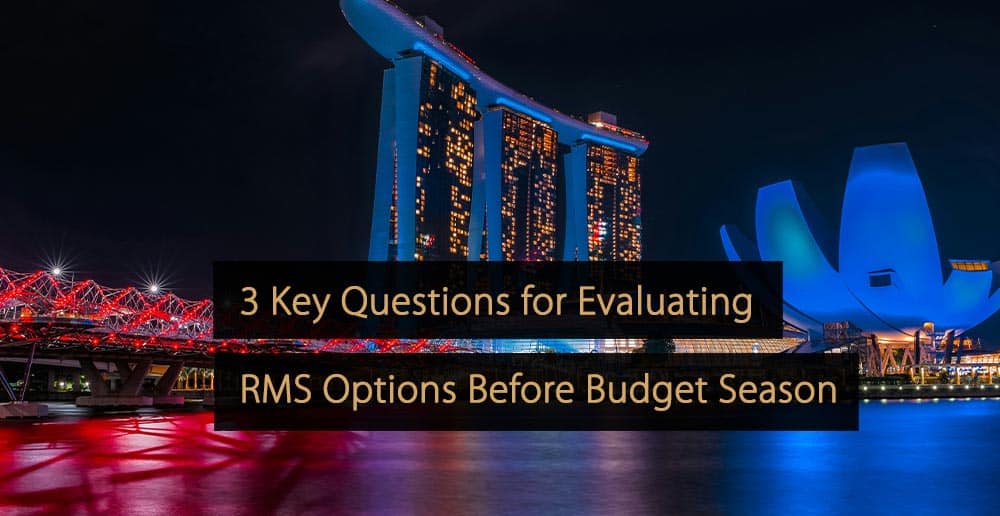
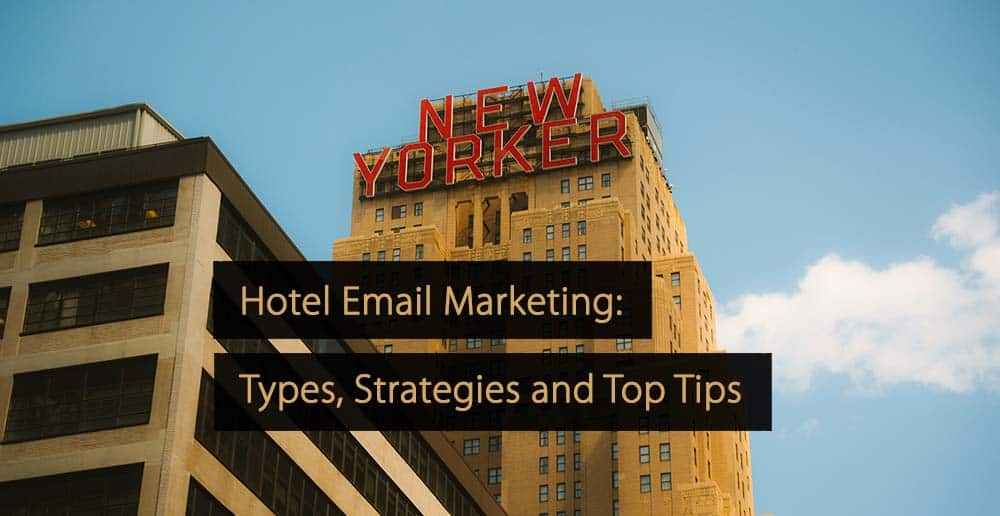
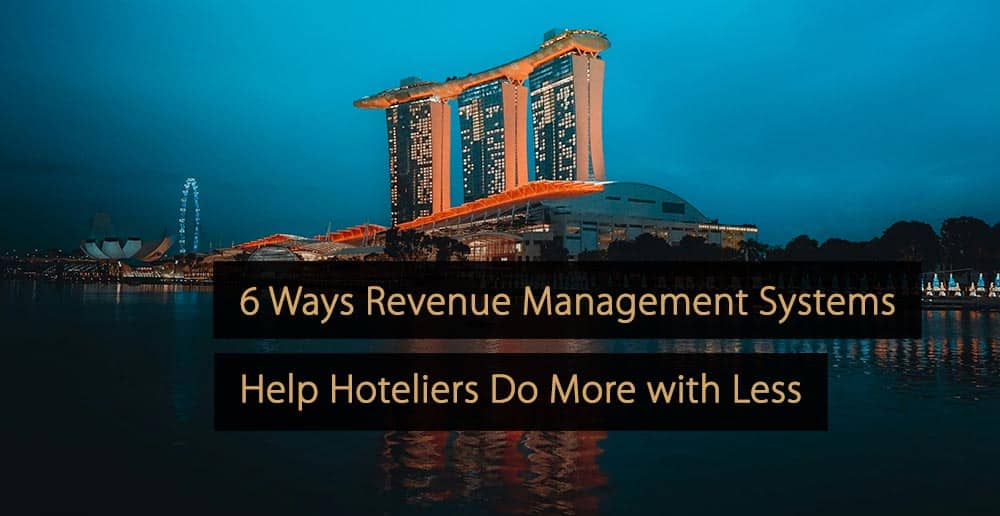
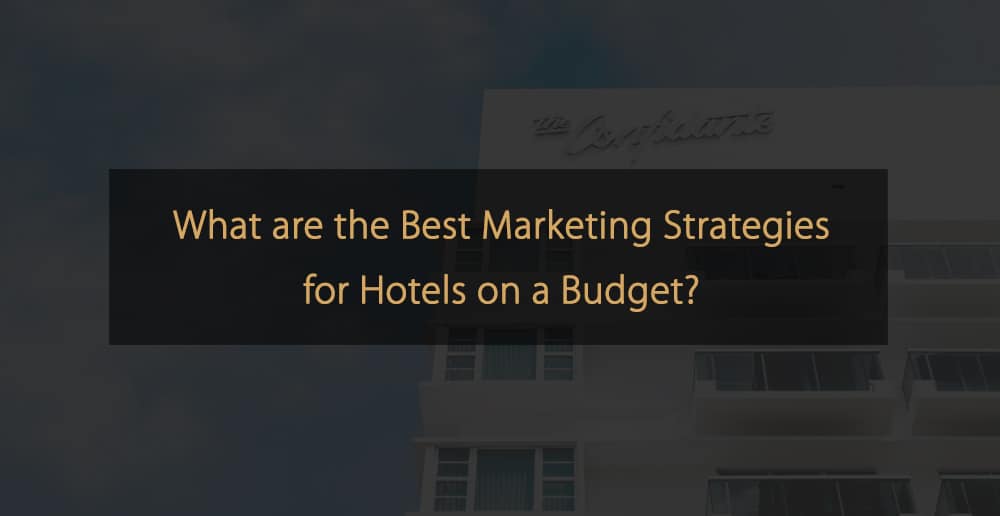
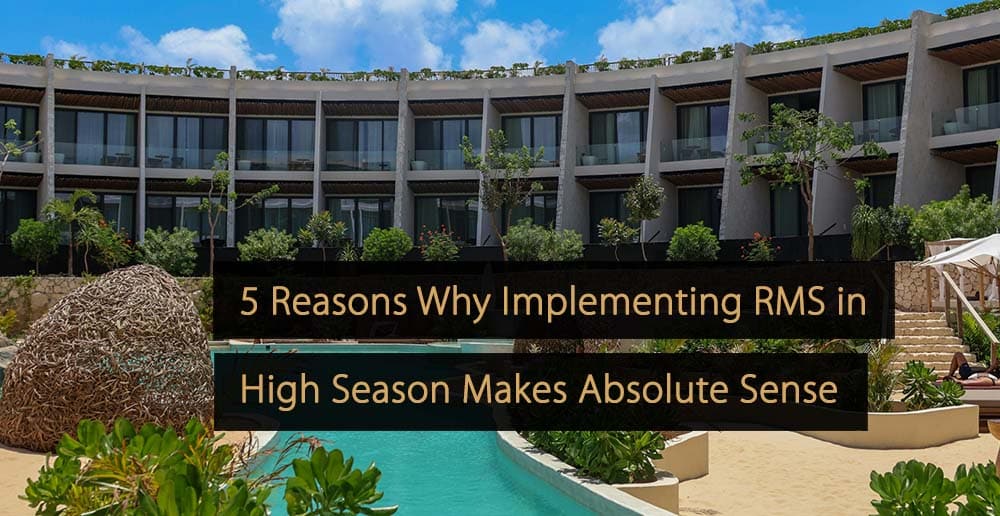
Leave A Comment